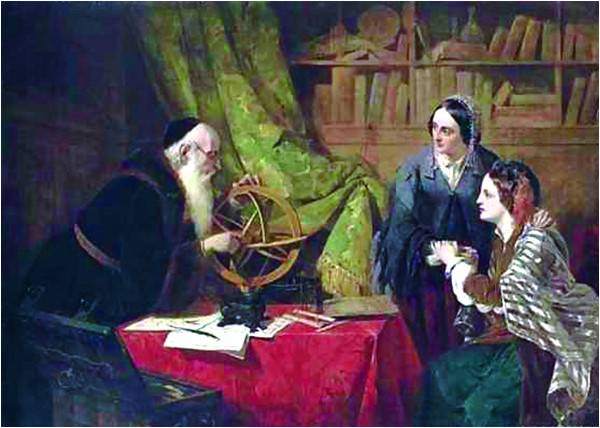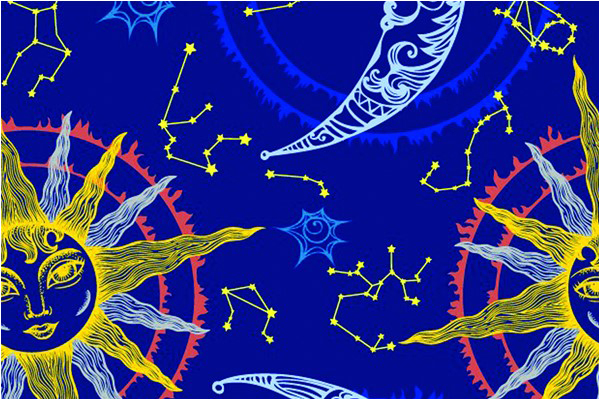
I’ve been in the market for a new soothsayer in Lahore for a while now. When people discover my long term commitment to the occult, it’s often a shock to them. Why? I don’t know. Perhaps because the idea that the planets affect our fate is about as far out as the widespread belief that fiery cross-dimensional beings like Djinns exist and spend their time hiding your valuables in your home out of a perverse sense of fun.
I presume the shock because for most of the time I’m a rational, logical person and people believe rationality is incompatible with the fact that I live in mortal fear of a Mercury retrograde. But I do live in fear, and if you realized what a tool Mercury can be, you would too. The last four years have been a bit cumbersome astrologically speaking. Things have alternated between stagnant and slow, as if I’m trying to run a sprint in a swimming pool. The horoscopes tell me this is normal but the usual veiled premonitions (big changes, large decisions) are only ever evident to me in retrospect when I look back on a period of time - which seems pretty counter productive for divination. And so periodically I go forth and find some guidance from astrologers. I like the fact that they draw on at least some kind of an externalized data set - birth time, birth charts, planetary movements, star signs etc - unlike psychics who tend to just stare into space hoping they guessed the name of your cat correctly (“Trick question Shahista. I actually own a fish, you blow-dried fraud!”)
Another reason I go astrologers is because I’m desensitized to them. I’ve been to so many in so many different places that by now their prophecies have melded into one indecipherable mammoth being labeled “Possible Future”. Things like “You’ll likely live a long life but have a propensity for cruelty” or “You’d do well in the army” or “One day you’ll become fat again and never go back” don’t necessarily affect me that much because part of me thinks I can cherry pick my futures like my astrologers. But most people aren’t like that. Most people don’t go to astrologers – and it’s not because they don’t actually believe, but because they fear they will believe too much.
I walked into a posh hotel in Lahore to have lunch the other day when I noticed a little signboard advertising readings and palmistry. My eyes lit up.
“I don’t want to go,” my lunch companion said, steering us towards the restaurant.
“But why?”
“What if he says something bad, and I end up believing it?”
“So,” I replied nonplussed, “Just go to another one afterwards.”
“It doesn’t work that way!”
“How would you know?”
This led to an exhausting metaphysical conversation about causality and the role of choice, which was a good way to spend lunch. But in the end I still insisted we go to his shop afterwards to check it out.
Shahbaz the Astrologer sits in a tiny arctic little room with space for no more than two people and one extremely effective AC unit. His room is in the shopping area of the hotel, nestled between a cigarette stall and a carpet shop. We didn’t have an appointment and I could see someone was already in session inside the room, so we stood outside awkwardly next to a girl on her phone.
Eventually the door opened and the client - a shifty looking man in his fifties who looked horrified that there was an audience to his exit - walked out quickly, followed by the astrologer. Shahbaz looks like a god-fearing Muslim; his upper lip is shaved but his beard is robust, and he has kind eyes and happy cheeks. He beckoned us both inside. When I told him the girl had been here first, he waved his hand dismissively.

“She comes everyday,” he said. “If she sits she won’t go away for a few hours. No point in you waiting.” She seemed to have expected all of this and didn’t glance up from her phone.
Inside we sat on a little bench seat opposite his chair. On the desk next to him was a laptop, notepads and tarot cards. Behind him was a bookshelf with an palmist’s model of the hand and a collection of some pretty old and rare books on everything from Astrology to dream interpretation. He obviously knows his stuff.
He starts by asking for your name, birthdate and birth time (ask your mother). A few quick calculations later he goes into a general survey of your personality, your fate, your recent past and impending future. In the middle he might ask to look at your palms, or ask you to do a quick tarot, but most of it comes from astrological birthcharts. This method of divination is a long standing part of South Asian culture, both Muslim and Hindu, and a lot of his terminology comes from Sanskrit.
He told me April 24 onwards things were due to improve in my life, but only until July. And then things look murky for another six months but that 2020 is the start to a good year. He told my friend much more: he talked about his family, future, trends, feelings, career, health, wellness and psychological development.
I felt shortchanged by comparison (he charges per person), but only until I saw my friend soaking up every word, and I wondered if I was getting too jaded for the soothsayers.
We both left there feeling better about our futures, which I suppose is the point of the exercise. At least until the next retrograde.
Write to thekantawala@gmail.com
I presume the shock because for most of the time I’m a rational, logical person and people believe rationality is incompatible with the fact that I live in mortal fear of a Mercury retrograde. But I do live in fear, and if you realized what a tool Mercury can be, you would too. The last four years have been a bit cumbersome astrologically speaking. Things have alternated between stagnant and slow, as if I’m trying to run a sprint in a swimming pool. The horoscopes tell me this is normal but the usual veiled premonitions (big changes, large decisions) are only ever evident to me in retrospect when I look back on a period of time - which seems pretty counter productive for divination. And so periodically I go forth and find some guidance from astrologers. I like the fact that they draw on at least some kind of an externalized data set - birth time, birth charts, planetary movements, star signs etc - unlike psychics who tend to just stare into space hoping they guessed the name of your cat correctly (“Trick question Shahista. I actually own a fish, you blow-dried fraud!”)
Another reason I go astrologers is because I’m desensitized to them. I’ve been to so many in so many different places that by now their prophecies have melded into one indecipherable mammoth being labeled “Possible Future”
Another reason I go astrologers is because I’m desensitized to them. I’ve been to so many in so many different places that by now their prophecies have melded into one indecipherable mammoth being labeled “Possible Future”. Things like “You’ll likely live a long life but have a propensity for cruelty” or “You’d do well in the army” or “One day you’ll become fat again and never go back” don’t necessarily affect me that much because part of me thinks I can cherry pick my futures like my astrologers. But most people aren’t like that. Most people don’t go to astrologers – and it’s not because they don’t actually believe, but because they fear they will believe too much.
I walked into a posh hotel in Lahore to have lunch the other day when I noticed a little signboard advertising readings and palmistry. My eyes lit up.
“I don’t want to go,” my lunch companion said, steering us towards the restaurant.
“But why?”
“What if he says something bad, and I end up believing it?”
“So,” I replied nonplussed, “Just go to another one afterwards.”
“It doesn’t work that way!”
“How would you know?”
This led to an exhausting metaphysical conversation about causality and the role of choice, which was a good way to spend lunch. But in the end I still insisted we go to his shop afterwards to check it out.
Shahbaz the Astrologer sits in a tiny arctic little room with space for no more than two people and one extremely effective AC unit. His room is in the shopping area of the hotel, nestled between a cigarette stall and a carpet shop. We didn’t have an appointment and I could see someone was already in session inside the room, so we stood outside awkwardly next to a girl on her phone.
Eventually the door opened and the client - a shifty looking man in his fifties who looked horrified that there was an audience to his exit - walked out quickly, followed by the astrologer. Shahbaz looks like a god-fearing Muslim; his upper lip is shaved but his beard is robust, and he has kind eyes and happy cheeks. He beckoned us both inside. When I told him the girl had been here first, he waved his hand dismissively.

“She comes everyday,” he said. “If she sits she won’t go away for a few hours. No point in you waiting.” She seemed to have expected all of this and didn’t glance up from her phone.
Inside we sat on a little bench seat opposite his chair. On the desk next to him was a laptop, notepads and tarot cards. Behind him was a bookshelf with an palmist’s model of the hand and a collection of some pretty old and rare books on everything from Astrology to dream interpretation. He obviously knows his stuff.
He starts by asking for your name, birthdate and birth time (ask your mother). A few quick calculations later he goes into a general survey of your personality, your fate, your recent past and impending future. In the middle he might ask to look at your palms, or ask you to do a quick tarot, but most of it comes from astrological birthcharts. This method of divination is a long standing part of South Asian culture, both Muslim and Hindu, and a lot of his terminology comes from Sanskrit.
He told me April 24 onwards things were due to improve in my life, but only until July. And then things look murky for another six months but that 2020 is the start to a good year. He told my friend much more: he talked about his family, future, trends, feelings, career, health, wellness and psychological development.
I felt shortchanged by comparison (he charges per person), but only until I saw my friend soaking up every word, and I wondered if I was getting too jaded for the soothsayers.
We both left there feeling better about our futures, which I suppose is the point of the exercise. At least until the next retrograde.
Write to thekantawala@gmail.com

